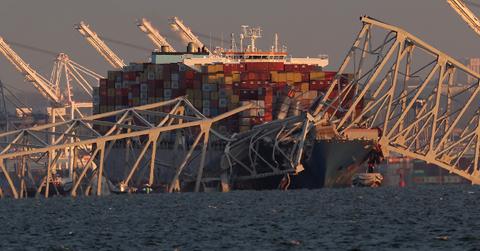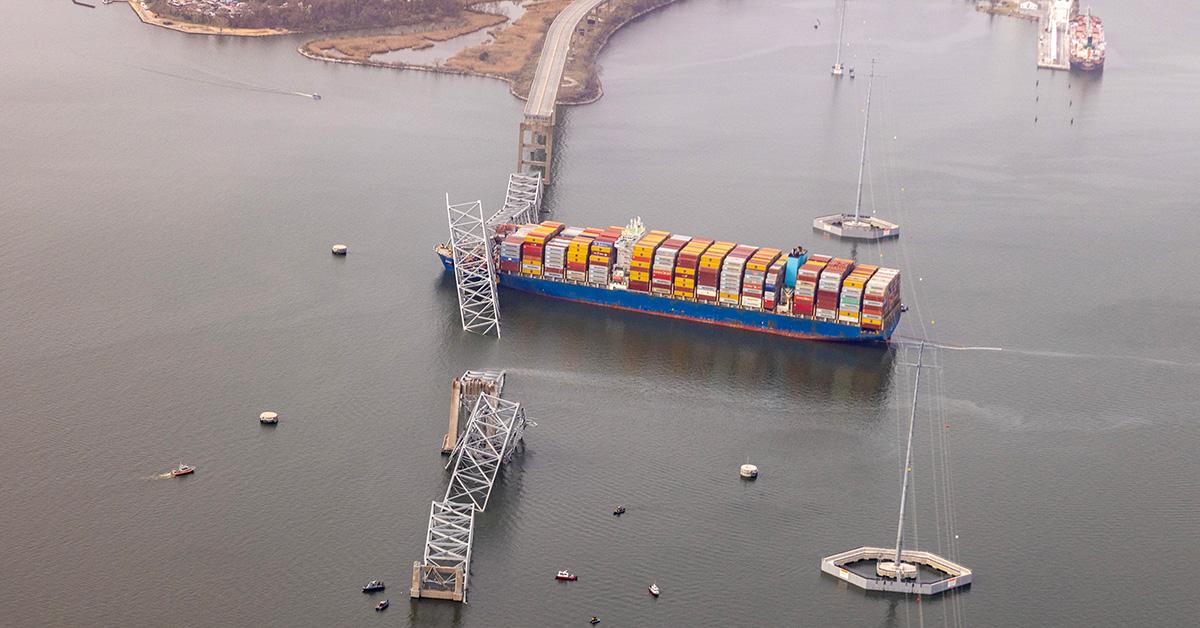The Baltimore Bridge Collapse Has Spawned a Raft of Conspiracies Online
The Francis Scott Key Bridge collapse has some suggesting that everything from Israel to COVID-19 vaccines are behind it.
Published March 28 2024, 11:17 a.m. ET

In an age when online theorizing has become a more common part of American life, it's hard for major news to break without it causing at least a small outbreak of conspiracy theories. The most recent example of this comes from the collapse of the Francis Scott Key Bridge in Baltimore.
Almost immediately after the container ship Dali hit the bridge, conspiracy theories began to circulate online suggesting that something other than the obvious culprit was behind the collapse. These conspiracies aren't surprising, but some of them were truly next-level.

Numerous conspiracies have been circulating since the bridge collapsed.
No single narrative has consolidated around the bridge collapse, and the theories were wide-ranging and usually politically tinged in one way or another. Some believed that the bridge collapse was somehow connected to a cyberattack, while others suggested that the ship's captain may have been impaired in some ways by the after effects of a COVID-19 vaccine (which makes for a nice conspiracy theory crossover).
Others suggested that Israel may have been behind the collapse in one way or another.
There is no solid foundation behind any of these theories, but they seem to pop up anyway, at least in part because no one has faith that they are being told the truth about what is happening in the country. When something disastrous happens, many simply assume that something is being hidden from them.
The conspiracies spread through platforms like Twitter and TikTok.
As is usually the case, the theories around the collapse ranged from fairly understandable to completely unhinged. Some fairly obvious candidates were the first to suggest that something sinister or strange may have been going on.
“Looks deliberate to me. A cyber-attack is probable. WW3 has already started," Alex Jones wrote on Twitter alongside a video of the collapse.
Twitter isn't the only place where the conspiracies have been spreading. Many have also posted the video on TikTok, adding their own commentary suggesting that something untoward may have happened.
These videos can go viral incredibly quickly, and it can be hard to mitigate the flow of misinformation that stems from accounts that seem to offer a compelling narrative.
The conspiracies prove that the internet is breaking our brains.
The spread of these conspiracies is just the latest piece of evidence that, especially in an era when many people get their news from social media, it's harder to discern fact from fiction than it has been in some time.
Conspiracy theories are appealing in part because they offer a grand narrative that helps the world make more sense than it often actually does.
Usually, though, the simplest explanation is the best one, and that's why it's unlikely that any of the conspiracy theories being floated online are actually true. They may be appealing to some who want to believe there's something sinister happening here, but in reality, that's probably not the case, even if many online seem to want it to be.